Android: Netrunner
The future has already arrived. It's just not evenly distributed yet.
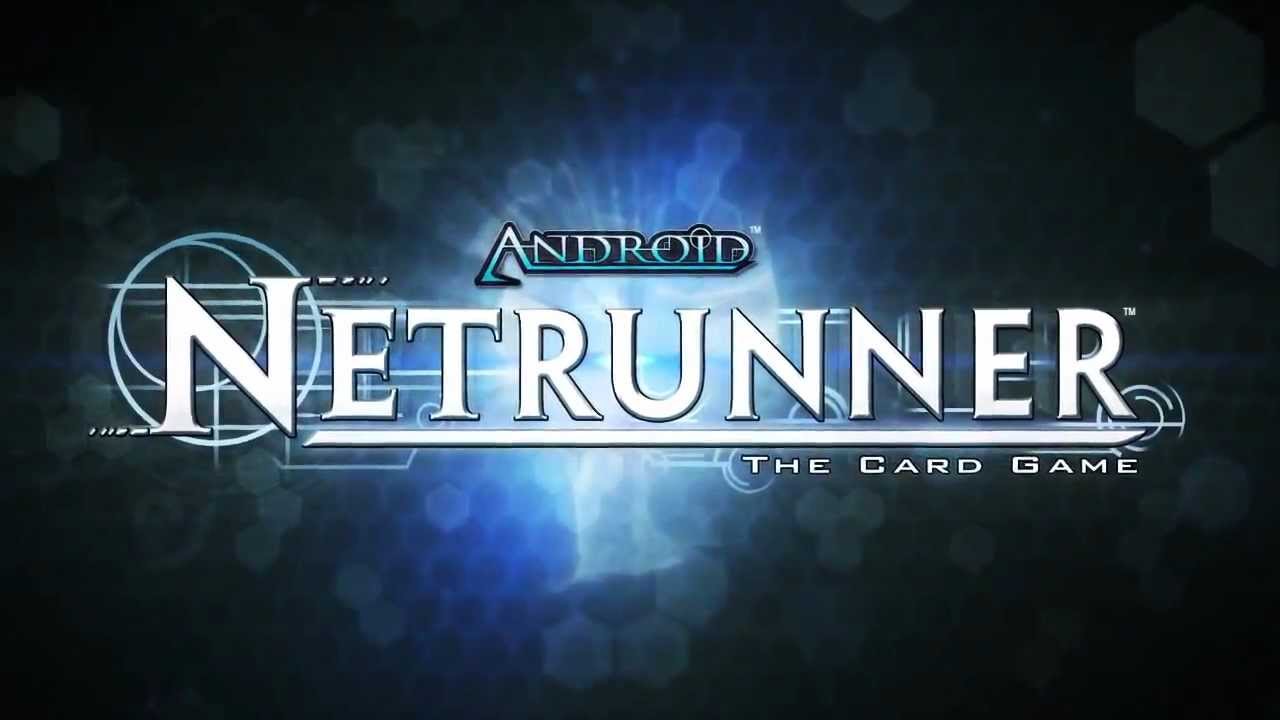
We live in an interesting, frightening, and paranoid time. With the whole NSA PRISM thing going on and the government and corporations watching our every move, it really does feel like we're spiraling into a sci-fi dystopian future where shadowy figures above us force their unsavory agendas and the only secrets we have are the ones that we don't think about.
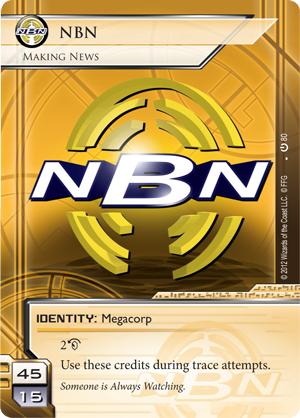
The fact that Fantasy Flight Games released their newest card game "Android: Netrunner" right as all the security theater drama started to go down almost seems like too much of a coincidence.
A re-imagining of an older game that appeared in the 90's, "Android: Netrunner" is two-player card game where the players take control of either an "evil" corporation or a hacker (known as a "runner" in game). Each side of the game has a different objective – the corporation wants to complete it's secret agendas while the runner wants to stop the corporation by stealing those agendas and destroying them.
It's kind of like a cross between William Gibson's "Neuromancer" and the 1995 film "Hackers." There may even be a little bit of "Ghost In The Shell" thrown in for good measure, as well.
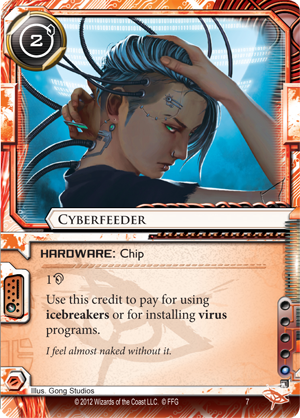
What makes "Netrunner" different from other cards games is how different each side of the field plays. The corporation is always on the defense, building up walls of to block their vulnerable servers and agendas until they build them up enough to score. They do this by setting up ICE, which is a kind of "firewall" with specific effects that blocks the runner's attempts at hacking into a server. The corporation can also set up traps to lure the runner into a dangerous situation. Hitting any trap or ICE card without the proper counter can lead to some fairly significant consequences.
The runner is on the attack the entire time, who is required to steal seven agenda points from the corporation for a victory. As the game goes on, they build up their computer (or "rig") to give themselves abilities and bonuses during runs. They also install programs – specifically icebreakers to smash through the corporations' defenses and interact with the server they're attacking. Specific pieces of ICE require specific icebreakers, so it's up to the player to make sure their runner deck is a Swiss army knife – able to deal with any situation.
The first thing you should notice about "Android: Netrunner" is the fantastic cyberpunk theme that drips from every card. Each card provides a glimpse into the world of "Netrunner," providing context for each action through beautiful illustration or bits of clever flavor text. Outside of the cards, each corporation and runner has it's own little story - either highlighted in the game's instruction manual or in one of Fantasy Flight's novels that it has published about the "Android" universe. The novels are mostly just mind-candy, but if you like cyberpunk or are interested in the world that the "Netrunner" cards are building, you should definitely check them out.
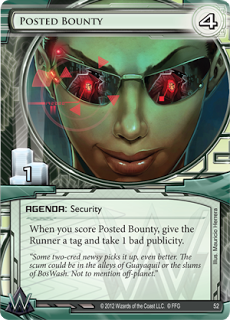
Another one of the key things about "Netrunner" that makes it really different is that the corporation can play cards face-down ... and the runner can not. The corporation always knows what the runner has in front of them, and the runner has to just trust their instinct. Sure, the runner is able to assume that a face-down card in front of a server is probably a piece of ICE, but they can never be sure what breaking through that ICE would lead you to (even if they have the ability to break that ICE at all). If they do, then maybe it'll be a high-powered agenda that would win you the game. Or maybe it'll be a trap and cause some of the runner's rig to explode or fail. Or maybe it'll be nothing, just a waste of time for the runner. A big part of the game is just bluffing and being able to see through bluffs; if you're able to do that successfully, you'll win the mind-game aspect of "Netrunner" easily.
Something that I really appreciate about "Netrunner" is that it's what Fantasy Flight is calling a “living card game.” While traditional trading card games thrive on expansion packs and random boosters, what a living card game does is release a new pack of cards every month. In "Netrunner," these are called "Data-Packs." Each data pack will have 60 cards total and three sets of each card (20 new cards for the mathematically-challenged). These cards are fixed, and once they're released, it's a snap to find lists of what is in each pack, making it super easy to make the deck you want and play the way that you want to play. It really cuts down on the cost of the game, as you don't spend as much money purchasing and digging through countless, randomized booster packs.
It isn't all about the cards in "Netrunner," either, another thing that separates it from similar trading card games. Besides actions the players can do with their cards, each side can spend action points every turn - runners get four and corporations get three - to earn extra credits, get rid of debilitating effects, or build up specific cards. This forces players to think up strategies outside the cards in their hand or deck and learn to utilize every tool that the game gives them in order to outmaneuver the opposing player.
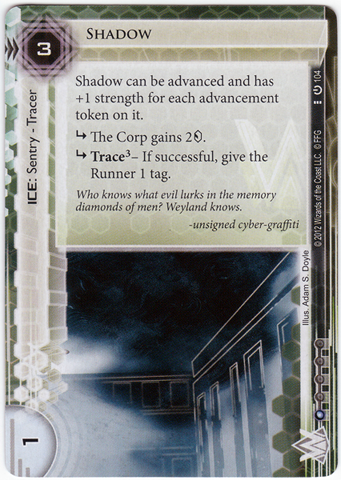
The interesting asymmetrical play style of "Android: Netrunner" is also one of its pitfalls. The game isn't something that you can just sit down and play. It requires some explanation, and it has a learning curve that might turn off more casual players. Even once someone has a grasp of the rules, if they lack a lot of experience with the game or the deck they're playing with, it can lead to some analysis paralysis and really slow everything down.
Like with any card game, luck (or just being really good at bluffing) can have a big impact and can really shorten a game match. With one bad run early on, a runner can be sucked into a trap that rips them to shreds or along the same vein, a poorly planned piece of ice or unshuffled deck can allow the runner to access a handful of agenda cards from the corporations' R&D (deck) and win just as fast.
The learning curve and the gap that can exist between an experienced player and a newbie is easily the most frustrating thing about the game.
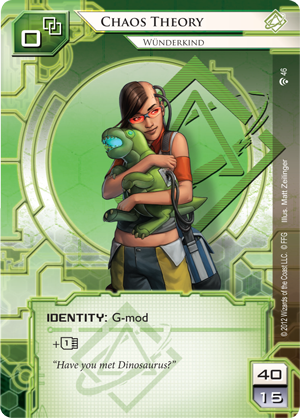
That learning curve, however, stems from the unique depth that "Android: Netrunner" boasts, something that makes it not just another version of "Magic" The Gathering." With Netrunner, you are given two games to play - the corporation's defend-and-bluff game or the runner's attack-and-react game. Both sides require very different strategies, and both sides are just as fun once you have the core concepts down. I highly suggest "Netrunner" if you're a fan of the sci-fi/cyberpunk genre or if you like games like "Magic: the Gathering" but want to try your hand at something that (and no offense to "MTG") might require a more complicated strategy. If you're new to trading card games, you might want to keep your distance from "Netrunner" for a bit or find a group of players that you can help you learn the mechanics of the game without having to wade through the rather dry 35-page instruction manual; Fantasy Flight did actually make a very informative tutorial video on how to play the game.
"Android: Netrunner" has become super popular in a time where - now more than ever - it feels like there are indeed giants above us making shady deals and pushing their own plans ahead of the needs of the rest of the world. It's hard to tell if that is coincidence because of how unique and fun the game is or if it comes from a consciousness of living in a new age of global paranoia. There is also a very good chance that I'm analyzing the game way too much. Still, "Android: Netrunner" tops my list of favorite trading card games (sorry, "MTG") and is deserving of the popularity that it's currently receiving all over the world. If you like the cyberpunk genre and hacking adventures or if world-consuming corporations are something that interest you, I can not recommend this game enough.
Pros
- Living Card Game model means no more buying dozens of booster packs looking for a single card.
- Game contains a great deal of strategic depth
- Asymmetric game-play means every game plays and feels a little bit different.
- Every card is true to the theme of the game.
Cons
- High learning curve can turn-off casual players
- Experience gap between players is typically very obvious and often frustrating for people trying to learn.
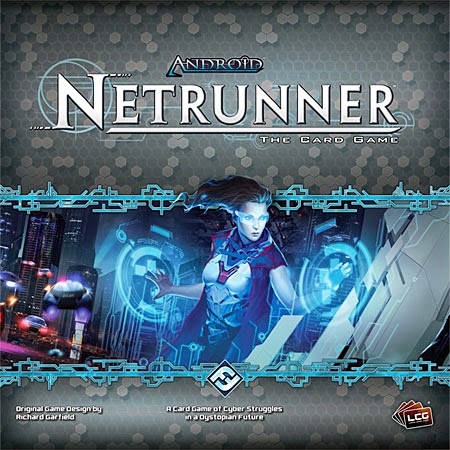
Android: Netrunner 8 / 10 Read our Review »
Release: 9/15/2012 [NA]
Publisher: Fantasy Flight Games
Platforms: Tabletop